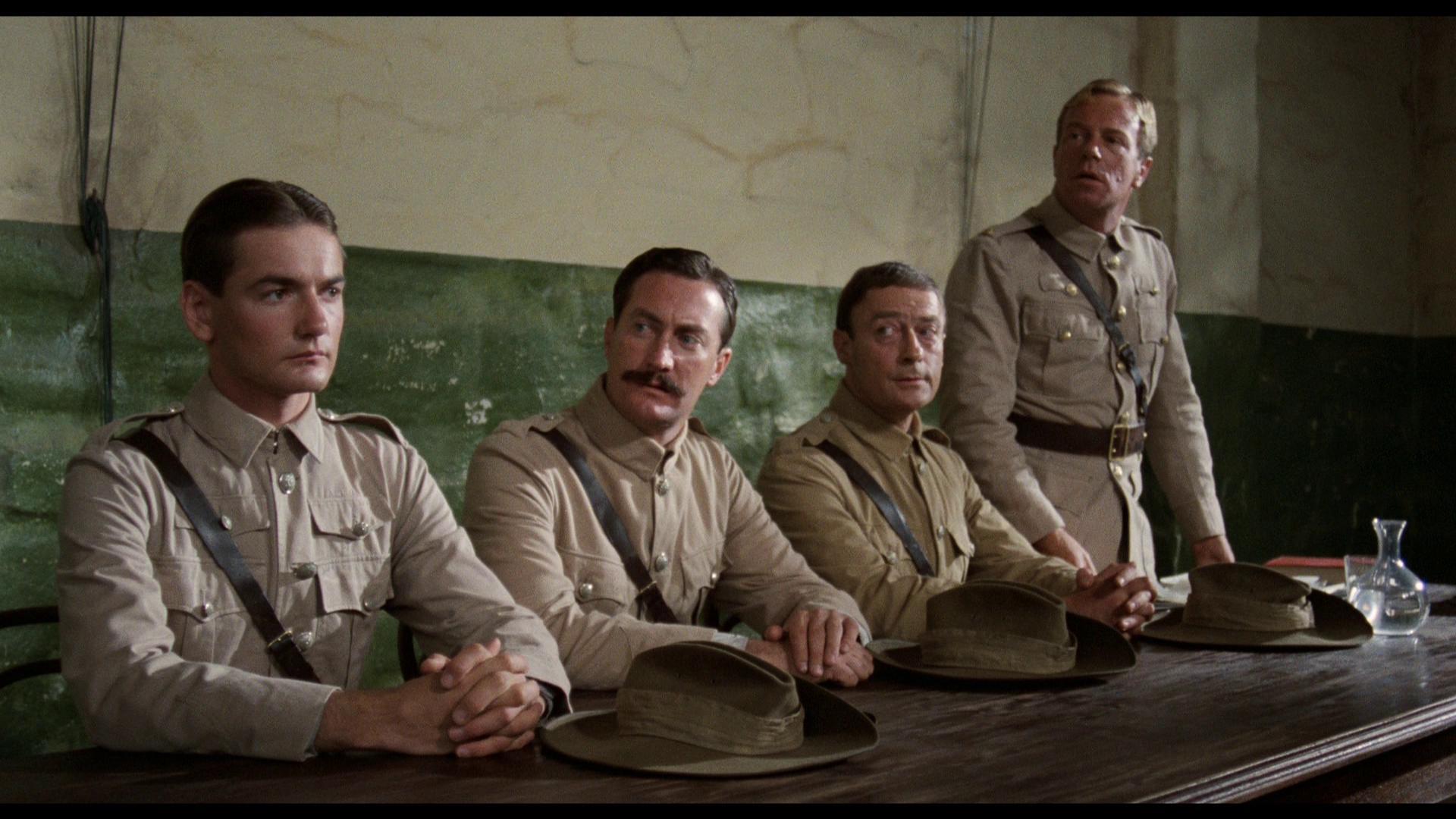It’s the laconic cynicism of Breaker Morant that always appealed to me. History and general consensus, both critical and popular, puts Peter Weir’s Gallipoli in pole position as Australia’s Greatest War Movie and it is, make no mistake, a great film. However, Weir and his team set themselves the task of simultaneously depicting the horrors of the First World War and of glorifying the diggers, an act of ANZAC myth-making that, while doubtless noble in intent, does not sit too well with me in this age of hyper-nationalism, performative patriotism, and flag-bedecked drunkards and race riots every April 25th and January 26th. I love Gallipoli, don’t get me wrong; I just have trouble contending with the strident, belligerent culture that Weir’s beautiful film has, though no fault of its own, become associated with.
Bruce Beresford’s Breaker Morant, by contrast, has very little truck with myth-making, and the lionization it does occasionally indulge in occurs on a much more personal and circumspect level, dealing with the self-image and cultivated demeanour of Lieutenant Harry Morant (Edward Woodward), bush balladeer, horseman, Australian soldier, and murderer. Morant is given to sentimentality and showmanship to at least some degree: witness his performance on the witness stand at his own trial, and his final poem before he is shot as a result of that trial. Breaker Morant the film, however, is a remarkably unsentimental film.
Based on real events but directly adapted from Kenneth G. Ross’s 1978 stage play by Beresford, Jonathan Hardy, and David Stevens, Breaker Morant is a courtroom drama and, like all courtroom dramas, a morality play. Set in 1901 South Africa during the Second Anglo-Boer War, the film follows three Australian soldiers serving under British command – Morant, Lieutenant Peter Handcock (Bryan Brown, because of course), and Lieutenant George Witton (Lewis Fitz-Gerald) – as they are tried for the murder of Boer prisoners and a German missionary suspected of being an enemy spy.
The rub is that there is no doubt that they did it – in the film’s most famous scene, Morant rants that his victims were executed, not murdered, under “Rule .303”. These men are not martyrs like the poor French soldiers of Stanley Kubrick’s Paths of Glory (1957). Rather than presenting such a clear-cut case of justice vs injustice, Breaker Morant asks us to engage with more complex thematic material. Of course, atrocities will be committed in wartime; of course, normal men, as the film demonstrates, will commit them; of course, tacit approval will turn to the harshest condemnation depending on the political realities of the moment. We’re left, largely on our own, to parse how we feel about Morant, Handcock, and Witton, what they’ve done, and what is done to them.
Beresford frames his story in a fairly classical style but deploys abrupt cuts and scene transitions to give the proceedings a staccato, military cadence, and frequently uses lingering closeups of the principle players, the better for us to see human emotions war with military decorum. The three accused know that they face the death penalty, and they know that it is politically expedient for them to die – the death of the missionary could bring Germany into the war, and the swift fusillading of three colonial soldiers is a small price to prevent that. They also know that their counsel, country lawyer and Australian soldier Major James Thomas (Jack Thompson because, again, of course) is being set up to fail: he has no trial experience, and precious little time to put together a defence strategy.
He certainly brings his A-game, though, and so does Thompson, who is simply electrifying as the keen-minded Thomas, who very quickly learns to stand his ground against the court martial officers (including Aussie acting legend Charles “Bud” Tingwell – the cast is really something) and to mount his defence with passionate intensity. It’s Thompson as Thomas who gets to frame many of the film’s thematic and dramatic points, musing for the court’s benefit that “…the tragedy of war is that horrors are committed by normal men in abnormal situations.”
It’s just one of several stand out performances; with its lengthy dialogue scenes and high stakes, Breaker Morant is a nigh-unparalleled actors’ movie. The supporting cast is packed to the gills with Australian notables who manage to imbue their roles with complexity and nuance even with only a few lines of dialogue allotted to them. Consider Terence Donovan as easygoing Captain Hunt, whose death provokes further barbarity from Morant; John Waters as tightly wound intelligence officer Captain Taylor; Ray “Alf Stewart” Meagher as belligerent Sergeant-Major Drummond, who testifies against our three; Alan Cassell as Lord Kitchener, commander of British forces in South Africa and the distant but merciless hand of the Empire in our story; Vincent Ball as Kitchener’s catspaw, Colonel Hamilton.
Of course, it’s the central three, along with Thompson, who stand out – although if we’re being honest, Thompson makes more of a mark than Fitz-Gerald, who is somewhat hampered with the less showy role of the young, idealistic Witton, whose innocence prevents him from seeing the grim implications of their situation as clearly as the more worldly Handcock and Morant. Brown’s rawboned charisma and working class sensibilities are on full display in the role of Handcock, and his perceptive grasp of the character’s internal contradictions – a loving husband who cheats on his wife, a loyal friend who ruthlessly guns down a priest, a gutter-mouthed joker who pens a heartfelt farewell note before his death – lend necessary shading to what could have been a fairly flat role in lesser hands (he also gets most of the big laughs – for all its weightiness, Breaker Morant doesn’t skimp on comedy or action as necessary leavening agents).



